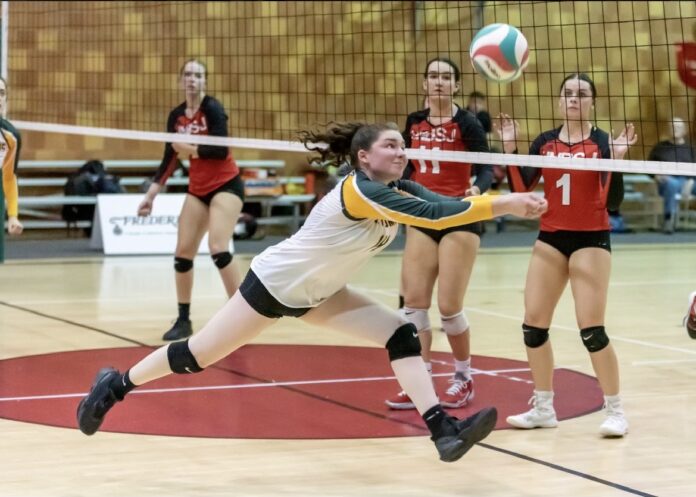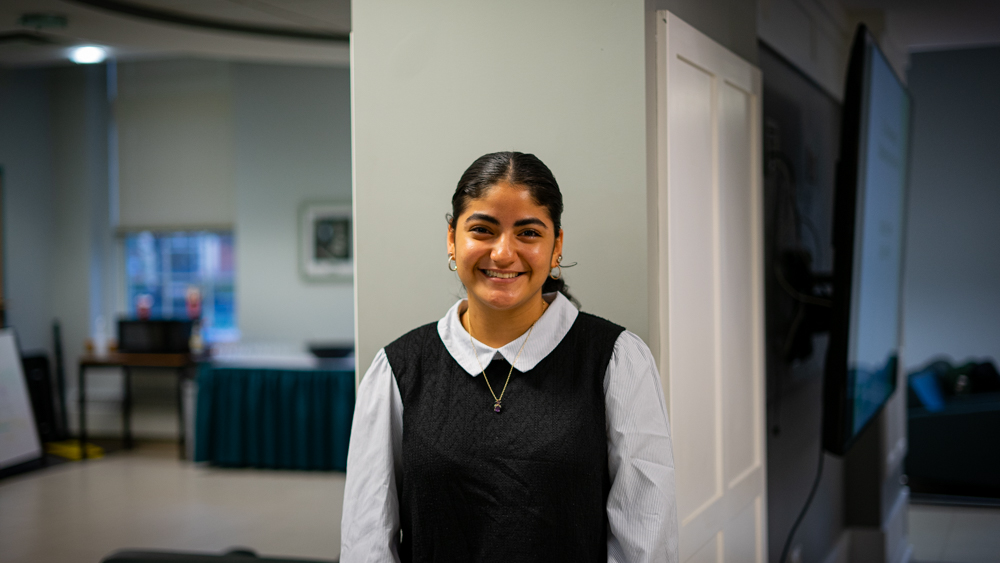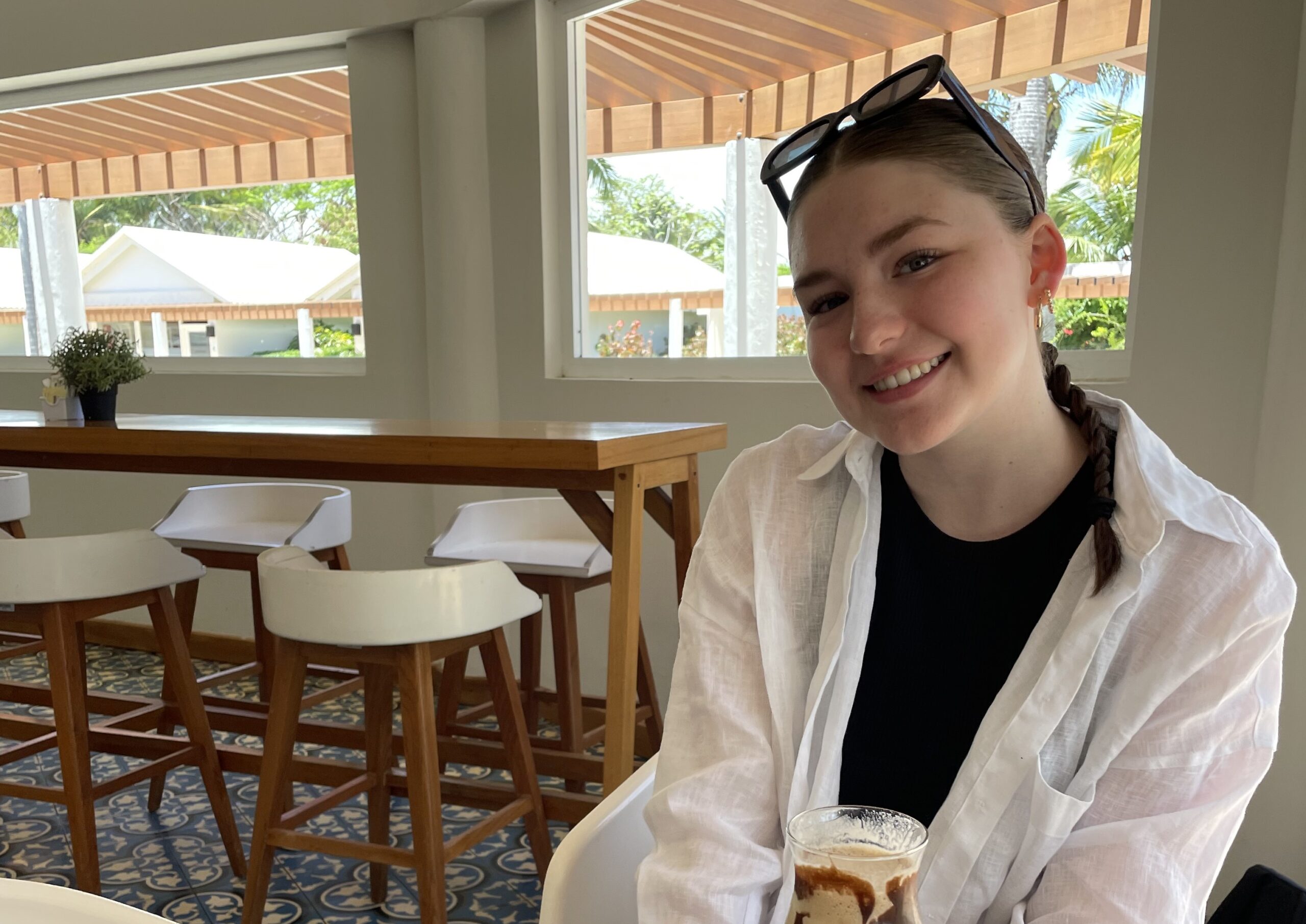
The St. Thomas University’s women’s volleyball team is scoring big by coaching high school teams. These players are serving up more than just spikes — they’re delivering valuable life lessons.
The current initiative is spearheaded by the Spartans Volleyball Club, which reached out to STU’s assistant coach last year and this year. Four Tommies volunteer each Monday night, rotating through the season. Assistant Coach Serge Godin also lends his support occasionally.
On the motivation behind the players’ volunteer work, head coach Don McKay drew on his educational background.
“Anytime that you can bring in some expertise to assist, everybody benefits. It’s a win-win for the people who are giving or teaching … and the people who are receiving.”
Despite the demanding schedule of university-level sports, McKay spoke about balancing responsibilities.
“They are responsible to let me know if they aren’t able to fulfill the commitment,” he said. “If classes take precedence or have a legitimate reason, we’re flexible.”
McKay also acknowledged the positive influence of university players on their younger counterparts.
“The young players are often in awe of the older players. They recognize somebody and the younger athletes get pretty excited when somebody comes into the gym.”
He hopes that the coaching helps to get high school players excited about the sport and program.
“We just hope to be able to assist and keep it moving in the right direction.”
McKay shared insightful moments from their volunteering efforts, emphasizing the diversity of experiences, from young children doing cartwheels to students keen on advancing in their respective sports. He commended Fredericton’s strong volleyball community.
Adding a personal touch to the narrative, Alessandra Hernandez, a rookie libero in the team, shared her thoughts and experiences on the volunteering front.

“It makes me happy to see how much I’ve grown in this sport. To see myself playing and teaching kids from another country that I came to play in, makes me really happy and proud of myself,” said Hernandez.
“I think they see us as their role model. I used to see the university girls that used to coach me as someone I want to be like,” said Hernandez. “That makes me proud because I am teaching them what they taught me.”
Julia Campbell, a third-year sociology student and a team captain, provided additional insights into the team’s coaching efforts.

“I do love coaching and I really am going to try and do it more.”
Campbell detailed the age groups they work with, ranging from under eight to middle school students, focusing on developing coordination and skills while instilling a love for volleyball.
Acknowledging the impact on their own skills and mentorship abilities, Campbell stated, “I think it’s really important to kind of remember where we started. Volunteering for younger groups is a really great way to do that.”
Campbell emphasized the broader benefits beyond the sport, saying she “would encourage anybody to do it.”
As the Tommies women’s volleyball team extends its influence beyond the court, their commitment to community engagement and mentorship stands as a testament to the transformative power of sports in shaping lives.
